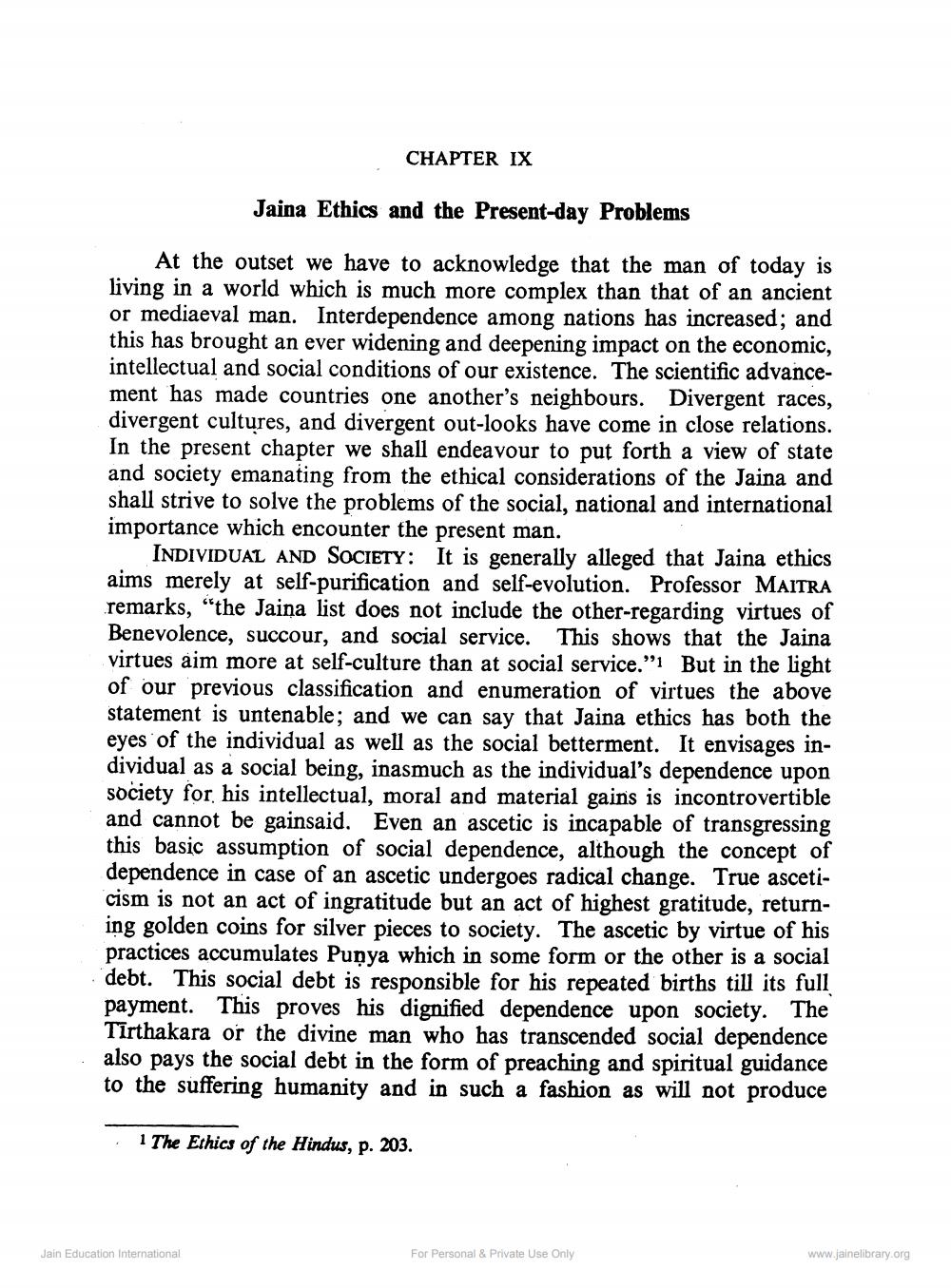________________
CHAPTER IX
Jaina Ethics and the Present-day Problems
At the outset we have to acknowledge that the man of today is living in a world which is much more complex than that of an ancient or mediaeval man. Interdependence among nations has increased; and this has brought an ever widening and deepening impact on the economic, intellectual and social conditions of our existence. The scientific advancement has made countries one another's neighbours. Divergent races, divergent cultures, and divergent out-looks have come in close relations. In the present chapter we shall endeavour to put forth a view of state and society emanating from the ethical considerations of the Jaina and shall strive to solve the problems of the social, national and international importance which encounter the present man.
INDIVIDUAL AND SOCIETY: It is generally alleged that Jaina ethics aims merely at self-purification and self-evolution. Professor MAITRA remarks, "the Jaina list does not include the other-regarding virtues of Benevolence, succour, and social service. This shows that the Jain virtues aim more at self-culture than at social service."1 But in the light of our previous classification and enumeration of virtues the above statement is untenable, and we can say that Jaina ethics has both the eyes of the individual as well as the social betterment. It envisages individual as a social being, inasmuch as the individual's dependence upon society for his intellectual, moral and material gains is incontrovertible and cannot be gainsaid. Even an ascetic is incapable of transgressing this basic assumption of social dependence, although the concept of dependence in case of an ascetic undergoes radical change. True asceticism is not an act of ingratitude but an act of highest gratitude, returning golden coins for silver pieces to society. The ascetic by virtue of his practices accumulates Punya which in some form or the other is a social debt. This social debt is responsible for his repeated births till its full payment. This proves his dignified dependence upon society. The Tirthakara or the divine man who has transcended social dependence also pays the social debt in the form of preaching and spiritual guidance to the suffering humanity and in such a fashion as will not produce
.
1 The Ethics of the Hindus, p. 203.
Jain Education International
For Personal & Private Use Only
www.jainelibrary.org




